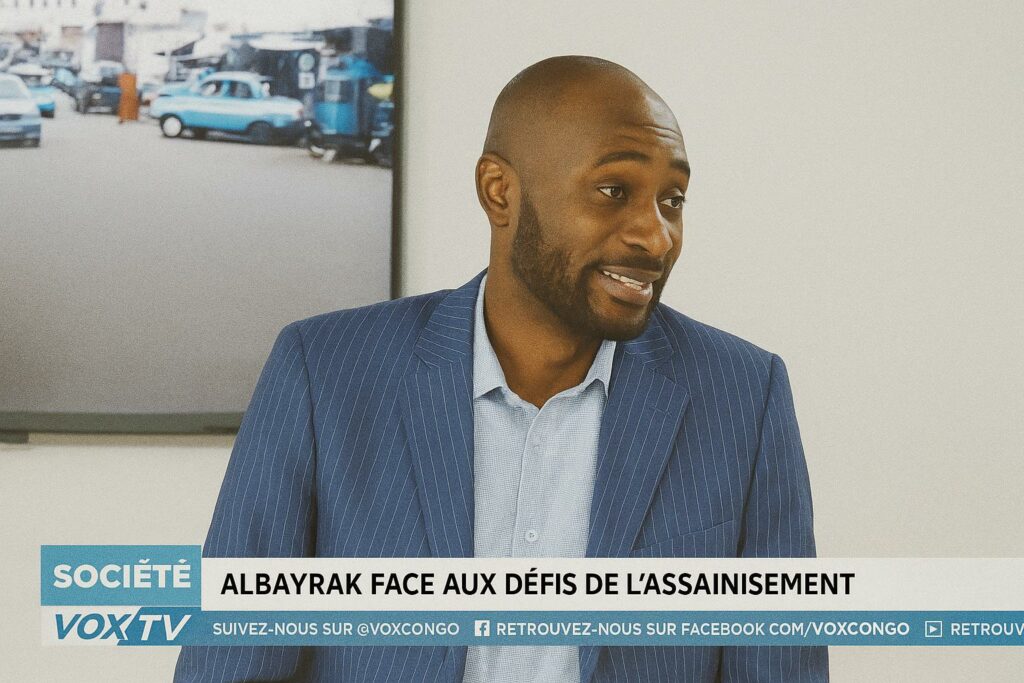A Turkish Conglomerate Lands in Brazzaville
When the Republic of Congo awarded its first large-scale urban sanitation concession to Istanbul-based Albayrak Group in 2021, the agreement was heralded in both Ankara and Brazzaville as a template for South–South cooperation (Congolese Presidency 2021). The five-year, USD 60 million contract covers waste collection, landfill management and street cleaning in Brazzaville and Pointe-Noire, two cities that together generate an estimated 1,200 tons of solid waste daily (UN-Habitat 2022). Albayrak executives promised modern fleets, GPS-tracked routes and job creation for some 2,500 local workers. For President Denis Sassou Nguesso, the deal answered growing popular discontent over overflowing landfills and recurrent floods now blamed as much on mismanaged refuse as on climate variability.
Financial Bottlenecks and Governance Friction
Yet the honeymoon proved short. Internal ministry documents reviewed by Congolese media indicate that by mid-2023 the government had accumulated arrears exceeding CFA 8 billion—nearly six months of unpaid invoices (Les Echos du Congo 2023). Albayrak, for its part, fell behind on fleet renewal targets, citing currency fluctuations and shipping delays from Mersin. Civil-society watchdogs complain that neither party has published the concession’s full text, hampering parliamentary oversight and leaving room for allegations of over-billing. A senior official in the Ministry of Finance admitted in an interview that “cash-flow prioritisation inevitably favours payroll and debt servicing before sanitation.” The official, requesting anonymity, warned that further delays could trigger penalty clauses and arbitration.
Public Perception and Labour Tensions in the Streets
On the ground, residents of the Talangaï and Makelekele districts confirm an uptick in collection frequency compared with the pre-contract era, but they simultaneously lament irregular schedules and sporadic diesel shortages. A June 2023 household survey by the Congolese Observatory for Public Services found that 58 percent of respondents viewed Albayrak’s performance as “moderately satisfactory,” while 24 percent labelled it “disappointing.” Unionised drivers staged a 48-hour strike in February 2024, demanding wage indexation to inflation and safer protective equipment. Albayrak’s local director, Selim Yıldırım, told reporters that “dialogue mechanisms exist,” yet reminded workers that profitability hinges on governmental disbursements. The impasse laid bare a triangular tension: a foreign operator squeezed between fiscal austerity and rising social expectations.
Climate Imperatives and Environmental Compliance
Beyond municipal politics, the concession intersects with Congo’s nationally determined contribution under the Paris Agreement, which lists methane capture from landfills as a mitigation priority. A joint audit by the Ministry of Environment and the German Corporation for International Cooperation (GIZ) in late 2023 found that leachate treatment at the Nkout landfill remains “rudimentary,” posing risks to the adjacent Mbé River ecosystem (GIZ 2024). Albayrak pledges to install biogas flaring units by 2025, arguing that carbon-credit revenues could partially offset operating costs. Environmental NGOs remain skeptical, noting that similar promises in Bamako and Mogadishu have yet to materialise. The World Bank’s forthcoming USD 150 million urban resilience loan to Congo explicitly conditions disbursement on verifiable emissions reductions, increasing the pressure on all stakeholders.
Ankara’s African Footprint and Strategic Calculus
Turkey’s Africa Partnership Policy frames ventures like Albayrak’s as instruments of soft power, complementing defence exports and scholarship programmes (Turkish MFA 2023). Diplomats in Brazzaville underline that President Recep Tayyip Erdoğan personally referenced the sanitation deal during his 2022 Central Africa tour as evidence of “mutual benefit without tutelage.” However, French and Chinese contractors, historically dominant in Congolese infrastructure, observe the Turkish advance with caution. A senior French diplomat quipped privately that Ankara is “learning that rubbish can be more politically combustible than cobalt.” Should the project falter, Turkey risks reputational damage that could reverberate across its 43 embassies on the continent.
Prospects for a Sustainable Turnaround
Negotiations are under way to refinance the concession through a mixed guarantee mechanism involving the West African Development Bank and a partial risk-sharing facility from the Islamic Corporation for the Insurance of Investment. If successful, the arrangement could stabilise cash-flows and allow Albayrak to introduce the promised waste-to-energy pilot plant. For Congolese authorities, the survival of the contract is intertwined with urban public health, as cholera outbreaks have been statistically correlated with garbage-clogged drainage (WHO 2022). Ultimately, the venture’s fate will hinge on credible transparency measures and a realistic alignment between service fees and fiscal capacity. In a region where infrastructure projects often oscillate between fanfare and fiasco, the Albayrak experience may yet become a case study in balancing geopolitical aspiration with the gritty mechanics of collecting yesterday’s trash.

